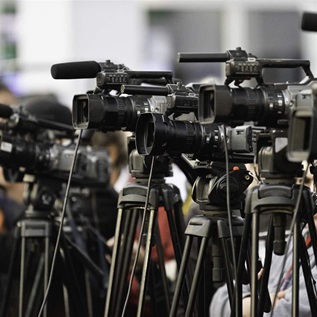States' Efforts to Fix Election Problems Hindered by Lack of Funding, Guidance, Confidence in Machines
Washington, DC- A report finds many of the election problems revealed in Florida and elsewhere during the 2000 presidential election have not yet been solved. "What's Changed, What Hasn't and Why: Election Reform 2004," issued today by electionline.org, the nation's leading nonpartisan and non-advocacy source for election reform analysis and information, provides a national overview of the scope and progress of changes to elections around the country.
"Millions of voters will return to the polls this year to find much has changed since the controversial presidential election four years ago," said Doug Chapin, director of electionline.org. "However, many other voters will vote in exactly the same way they did in 2000."
The report details specific election changes in each of the 50 states, highlighting states that have been leaders such as New Hampshire, Georgia and California as well as states that have work left undone such as New York, Massachusetts and Wisconsin.
"What's Changed…" discusses the election reform rules that were adopted by every state and territory as a result of the Help America Vote Act (HAVA) of 2002, including:
- No voters will be turned away. All voters who arrive at polling places and believe that they are registered, but do not appear on voting rolls, will be issued provisional ballots. These special ballots will then be segregated from other ballots and counted only if it can be determined that the voter is properly registered.
- Some voters must show identification. All first-time voters who registered by mail but did not include some verification of their identity with their applications will have to present identification at polling places in the 2004 elections. Seventeen states will require all voters to show identification for the first time in a presidential election.
"There are some positive changes that have occurred nationwide," said Chapin. "For example, if you vote through a provisional ballot, every state and territory has established a toll-free number or a Web site that allows you to see whether your ballot was counted."
HAVA included the provision of both election reform federal dollars and guidance for states, but these components have not yet been delivered. As a result, many states have been slow to make other federally required changes, including:
- Statewide voter registration databases. These databases are a key component to ensuring only legitimate voters cast ballots
- Electronic voting machines. In 22 states, punch cards--singled out for their problems with "hanging" and "pregnant" chad--will still be used in at least some counties.
"When Congress passed HAVA, they made a promise to provide funding and guidance to the states as they worked to reform their election systems," said Dan Seligson, editor, electionline.org. "Without this assistance, many states were hesitant to make sweeping changes."
The report also focuses on the question of whether voter confidence in elections will increase because of changes made by states and the federal government. It identifies key areas of concern, including direct-recording electronic voting machines or "touch-screens." Proponents of electronic voting machines claim that they will speed reporting of results, improve the accuracy of vote counts and make elections more cost efficient and accessible for people with disabilities
"Electronic voting machines have been praised as the future of voting," said Chapin. "But our research indicates that these replacements for punch cards have raised just as many questions about accuracy and reliability among some experts and state officials."
Examples of concern over electronic voting machines in the report include:
- In California, Nevada and Oregon, state rules will require or already require voter-verified paper audit trails that can be used in case of contested races.
- In a close race in South Florida in early January, 134 ballots came up blank in a single-office special election with a 12-point margin of victory.
- In Washington, the secretary of state announced he would seek legislation requiring paper trails with electronic machines, and similar bills could be introduced this legislative session in Ohio and other states around the country.
Electionline.org is the nation's leading source of election reform news, analysis and data. It is supported by The Pew Charitable Trusts through a grant administered by the University of Richmond.
Pew is no longer active in this line of work, but for more information, please visit electionline.org.






